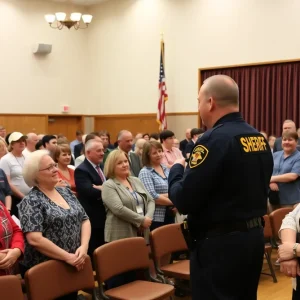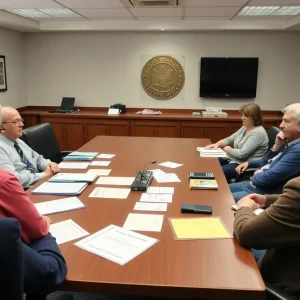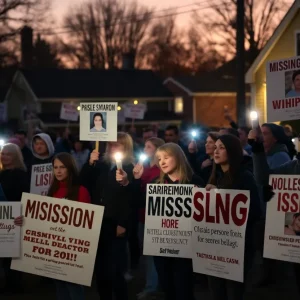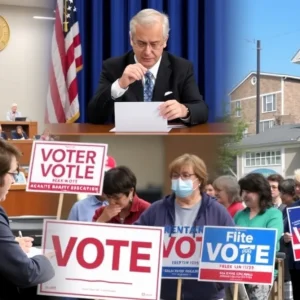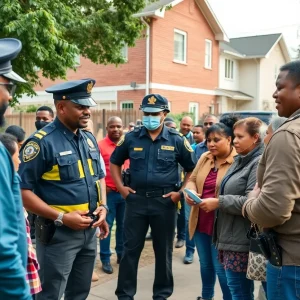Austin, Texas – Inside Legal Uncertainties Surrounding Robert Roberson’s Case
Robert Roberson, a death row inmate in Texas, did not show up for a scheduled testimony before the Texas House Committee on Criminal Jurisprudence on Monday. Despite a subpoena issued just last week that paused his execution, Roberson’s absence left lawmakers and his attorneys questioning the next steps in his legal battle.
Roberson was supposed to testify about the circumstances surrounding the conviction for the tragic death of his 2-year-old daughter, Nikki Curtis, in 2002. Nikki died under what authorities initially described as “shaken baby syndrome.” However, both Roberson and his legal team have claimed that this diagnosis is incorrect and that he is innocent.
Expectations of a Live Testimony
Committee chair Rep. Joe Moody expressed his doubts about Roberson testifying, mentioning that discussions were still ongoing with the Texas Attorney General’s office regarding the logistics of his potential appearance. Initially, there were hopes that Roberson would testify in person, as lawmakers believed this would provide a clearer view of his struggles with autism during the trial. Moody stated, “I expect a quick resolution to these discussions, which are ongoing, even at this moment.”
Roberson was set to be executed last Thursday, but this was halted due to the committee’s decision to subpoena him. The Texas Supreme Court granted a partial stay of execution amid legislative inquiry into the case.
A Day of Discussions and Conflicting Views
Although Roberson was absent, the hearing proceeded with testimony from various witnesses, including well-known TV host Dr. Phil McGraw and author John Grisham. Those who testified included professionals who discussed how autism may have affected Roberson’s interactions at the time of the trial.
Roberson’s attorney, Gretchen Sween, asserted that Roberson’s autism, which was undiagnosed during his trial, significantly impacted his ability to communicate effectively and advocate for himself. She emphasized that appearing virtually would be challenging, as Roberson has never used video call technology and struggles with social cues. Sween stated that seeing Roberson in person would allow lawmakers to better understand his impairments.
Debate Over Shaken Baby Syndrome
Several individuals testified against the validity of the shaken baby syndrome diagnosis that formed the basis of Roberson’s conviction. Psychologist Dr. Natalie Montfort, who reviewed the case, highlighted that much of the evidence presented at the trial was based on misunderstandings caused by Roberson’s then-undiagnosed autism.
For instance, Montfort pointed out that behaviors interpreted as evidence of guilt—like Roberson’s emotional responses or lack thereof—were actually rooted in his autism. She explained that the jury may have misconstrued Roberson’s reaction to his child’s condition as indifference rather than a reflection of his disability.
Juror’s Perspective
Terre Compton, a juror from Roberson’s trial, testified during the hearing. She expressed regret about the verdict, suggesting that had they known the full context of Roberson’s circumstances, they might have reached a different conclusion. “I could not live with myself thinking that I had a hand in putting an innocent man to death,” Compton stated.
Roberson’s Support and Next Steps
The ongoing discussions between the committee and the attorney general’s office leave Roberson’s future in a state of uncertainty. If lawmakers agree on a feasible plan for Roberson’s testimony, he could still have a chance to present his case. There is also ongoing litigation concerning the procedures related to his original conviction and whether there are substantial grounds to revisit the shaken baby syndrome diagnosis.
As the committee continues to evaluate the science behind shaken baby syndrome and the implications of Roberson’s autism on his trial, the outcome could have ramifications not only for Roberson but for how similar cases are handled in the future. Right now, Texas lawmakers feel a sense of responsibility to ensure justice is served effectively and fairly moving forward.







